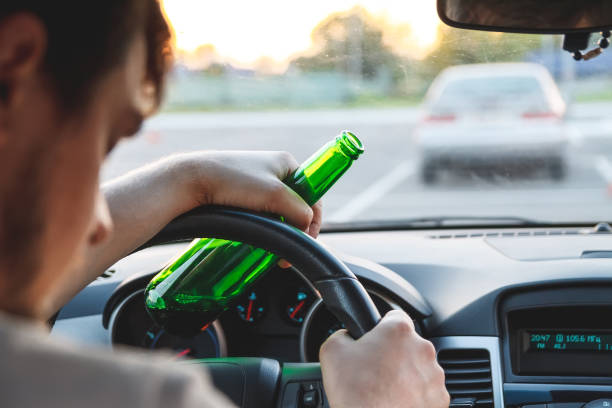DUI accidents pose a significant threat in society, with many directly related to impaired drivers. Causes include reckless decisions, peer pressure, and neglecting designated driver programs. Legal repercussions for DUI can be severe, involving license suspension, fines, and potential imprisonment.
Understanding blood alcohol concentration levels is vital, and victims of DUI accidents endure emotional, physical, and financial hardships. Seeking prompt legal counsel and support after a DUI arrest is crucial. Delving deeper into DUI accidents offers insight into prevention strategies, victim impacts, and more.
DUI Definition and Statistics
DUI incidents, commonly referred to as driving under the influence, are a significant concern in modern society due to their alarming frequency and detrimental impact on road safety. The prevalence of DUI cases remains a pressing issue, with numerous accidents occurring as a result of individuals operating vehicles while impaired. The consequences of DUI incidents are severe, ranging from financial penalties and license suspension to potential incarceration for offenders.
According to statistics, a substantial number of car accidents are directly linked to drivers under the influence of alcohol or drugs. These incidents not only endanger the lives of those involved but also pose a threat to other road users and pedestrians. The aftermath of DUI accidents often involves property damage, injuries, and in tragic cases, fatalities.
Law enforcement agencies consistently work to combat the prevalence of DUI incidents through awareness campaigns, sobriety checkpoints, and strict penalties for offenders. Understanding the gravity of DUI consequences is crucial in promoting responsible driving behavior and enhancing road safety for all.
Common Causes of DUI Accidents
The reckless behavior and poor decision-making that lead to impaired driving incidents stem from various factors that contribute to the prevalence of DUI accidents on our roads. Driver responsibility plays a crucial role in preventing DUI accidents. Irresponsible actions such as drinking excessively before driving, ignoring designated driver programs, or choosing to drive under the influence of drugs all significantly increase the risk of accidents. Additionally, societal issues like peer pressure and the normalization of drunk driving can also influence individuals to make dangerous choices that endanger public safety.
Public safety is paramount when discussing the common causes of DUI accidents. Drivers have a duty to operate their vehicles safely and ensure they are fit to drive. Neglecting this responsibility not only puts their lives at risk but also jeopardizes the safety of other road users. By understanding the importance of driver responsibility and its impact on public safety, individuals can make more informed decisions about driving under the influence.
Legal Ramifications of DUI
Effective enforcement of laws surrounding impaired driving is crucial in ensuring accountability and promoting road safety. Drivers arrested for driving under the influence (DUI) face significant legal consequences. These consequences can include license suspension or revocation, hefty fines, mandatory attendance at alcohol education programs, and even imprisonment in severe cases.
The severity of these consequences often depends on factors such as the driver’s BAC level, prior DUI offenses, and whether any accidents or injuries resulted from the DUI incident.
Once arrested for DUI, the driver will go through the court process, which involves a series of legal proceedings. This typically includes an arraignment, where the charges are presented, followed by a trial where the evidence is examined and a verdict is reached.
Throughout this process, it is essential for individuals facing DUI charges to seek legal representation to navigate the complexities of the legal system and work towards the best possible outcome. Understanding the legal ramifications of DUI is crucial for promoting responsible driving behavior and reducing the incidence of impaired driving accidents on our roads.

Leave a Reply